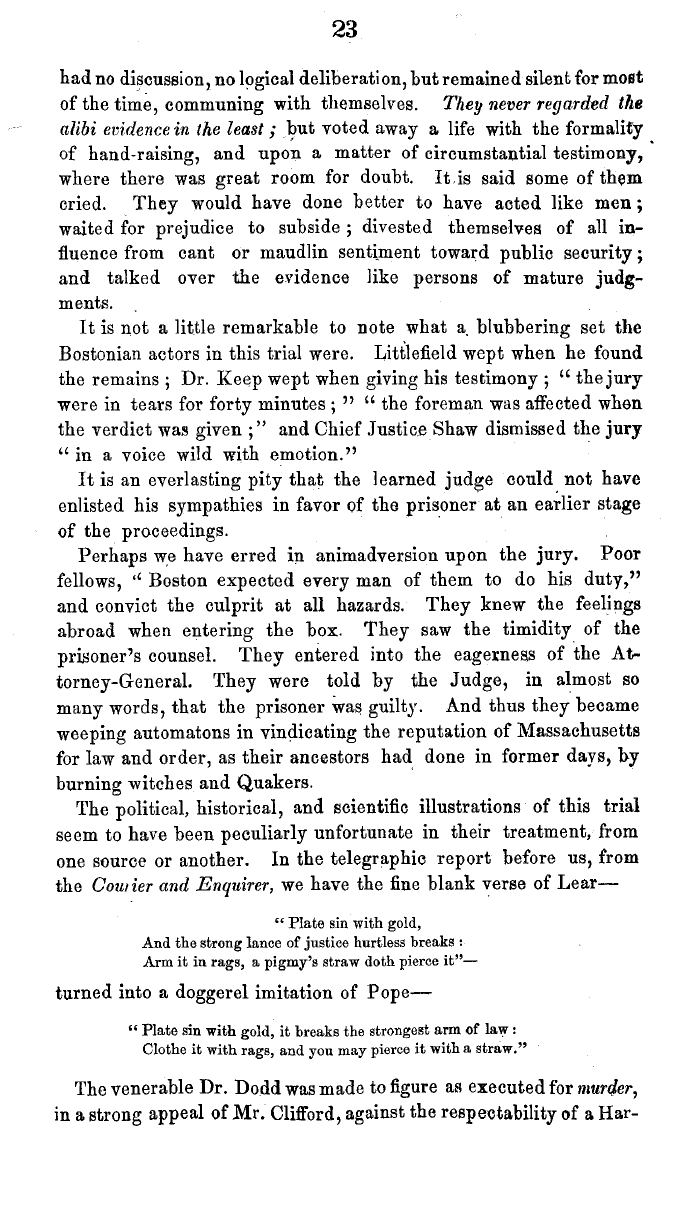|
23
had no discussion, no logical deliberation, but remained silent for most
of the time, communing with themselves. They never regarded the
alibi evidence in the least ; but voted away a life with the formality
of hand-raising, and upon a matter of circumstantial testimony,
where there was great room for doubt. It,is said some of them
cried. They would have done better to have acted like men;
waited for prejudice to subside ; divested themselves of all in-
fluence from cant or maudlin sentiment toward public security;
and talked over the evidence like persons of mature judg-
ments.
It is not a little remarkable to note what a, blubbering set the
Bostonian actors in this trial were. Littlefield wept when he found
the remains; Dr. Keep wept when giving his testimony; " the jury
were in tears for forty minutes ; " " the foreman was affected whon
the verdict was given ;" and Chief Justice Shaw dismissed the jury
" in a voice wild with emotion."
It is an everlasting pity that the learned judge could not have
enlisted his sympathies in favor of the prisoner at an earlier stage
of the proceedings.
Perhaps w e have erred in animadversion upon the jury. Poor
fellows, `` Boston expected every man of them to do his duty,"
and convict the culprit at all hazards. They knew the feelings
abroad when entering the bog. They saw the timidity of the
prisoner's counsel. They entered into the eagerness of the At-
torney-General. They were told by the Judge, in almost so
many words, that the prisoner was guilty. And thus they became
weeping automatons in vindicating the reputation of Massachusetts
for law and order, as their ancestors had done in former days, by
burning witches and Quakers.
The political, historical, and scientific illustrations of this trial
seem to have been peculiarly unfortunate in their treatment, from
one source or another. In the telegraphic report before us, from
the Courier and Enquirer, we have the fine blank verse of Lear-
Plate sin with gold,
And the strong lance of justice hurtless breaks
Arm it in rags, a pigmy's straw doth pierce it"-
turned into a doggerel imitation of Pope-
'~ Plate sin with gold, it breaks the strongest arm of law
Clothe it with rags, and you may pierce it with a straw."
The venerable Dr. Dodd was made to figure as executed for naur~er,
in a strong appeal of Mr. Clifford, against the respectability of a Har-
|

